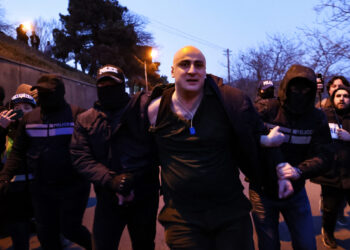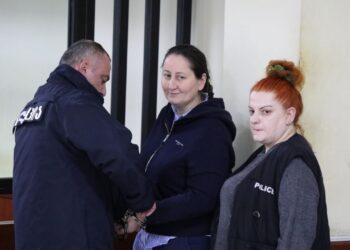It has been less than a week and the Geneva deal, from which the de-escalation between Russia and Ukraine was supposed to start, doesn’t hold water any more. After the Easter truce – which was not respected by the way – the Ukrainian President Oleksander Turchynov has ordered its army to restart the anti-terrorist operation against pro-Russian separatists in the eastern regions. And Moscow swiftly replied: if Russian interests in Ukraine would be attacked, said the Russian Foreign Minister Sergei Lavrov, Moscow will intervene as it did in Georgia in 2008, when it sent its tanks into the Caucasian region.
As explained by its temporary President, Ukraine was pushed to use tougher tactics after two corpses were found in Slavyansk, into the Donetsk region. They were “two brutally tortured persons,” one identified as the disappeared municipal councillor of Horlyva, Volodymyr Rybak; the crimes, said Turchynov, “were undoubtedly committed with Russian full support and connivance.”
If Kiev gets tougher, Russia is ready to use the strong arm as well: “If we our interests, our legitimate interests, Russian interests are directly attacked,” warned Lavrov, “as it happened in South Ossetia, I see no other option than intervene, respecting the international law.” According to Lavrov, United States, EU and Ukraine had the possibility of making sure of the fact that Russia is not carrying out any military activity on its borders with Ukraine.
While Moscow and Kiev are blaming each other, the US are following with deep concern the news about the American journalist Simon Ostrovsky, whose kidnapping was announced on Tuesday. The pro-Russian militia of Slaviansk said they are keeping him in custody into a local palace of the security services, occupied by pro-Russian groups more than a week ago. The man, they said, is suspected of “negative activities.”
The EU keeps on calling for each parties to keep their commitments, Russia first. “We saw some signs of the implementation of the Geneva agreement by the Ukrainian side. We call for all partners to respect the conditions set,” said Michael Mann, spokesperson of the EU High Representative for Foreign Policy, Catherine Ashton, inviting Russia to “use its influence on separatists.” Brussels does not seem to condemn the relaunching of military activities in the east by Kiev: the Geneva agreement, said Mann, acknowledges the Ukrainian right to launch military actions to protect its territory, avoiding violences that could lead to an escalation of the tense situation.”


![[foto: European Council]](https://www.eunews.it/wp-content/uploads/2025/02/ue-georgia-350x250.png)








